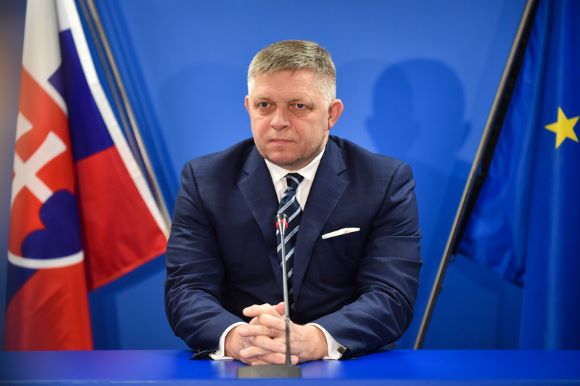Slovakia’s Prime Minister Robert Fico wants to change the national constitution to create “a dam against progressivism” giving legal precedence to “national identity” issues like family and gender. Critics, including legal experts, claim the proposed amendment clashes with Slovakia’s obligations to European Union laws and international treaties.
Opponents fear Fico’s increasingly anti-liberal stance on rights issues is a further sign of his determination to follow the international policy lead of Russia and Hungary. The populist leader has pursued closer ties with the Kremlin and with Beijing while taking issue with sanctions on Moscow and EU military aid for Ukraine. His government has accused liberal protesters of planning a coup, tightened rules for NGOs, increased control over public broadcasters, and attacked independent media as foreign agents.
“The Slovak Republic maintains sovereignty above all in issues of national identity”, according to the amendment, especially with regard to cultural and ethical issues. Only male and female will be recognised in determining gender; school curriculums must adhere to these constitutional provisions. It also calls for stricter rules on adoption. A report accompanying the bill maintains that it is fully in line with EU law.
Some opposition members of parliament, however, plus a group of lawyers that includes five former constitutional court judges, warn that the proposed amendment is at variance with Slovakia’s “commitments resulting from European Union law and international law and creates a legal basis to diverge from values of the European Union and the Council of Europe”. Accordingly, the group says, the amendment “would weaken or even preclude enforcement of international law and European Union law in Slovakia.” The goup also pointed out that the amendment’s vague language created legal uncertainty and left room for extensive interpretation.
PM Fico’s squabbling coalition of leftists and nationalists depends for its slim majority on the support of a number of independents. However, the proposed amendment has the backing of the opposition conservative Christian Democrats as well as two members of the opposition Slovensko party, which could be sufficient to deliver the requisite 90 votes in the 150-seat parliament when it comes to the deciding vote in the coming days.
Amnesty International has denounced the move. “This is not a defence of identity or sovereignty, this is a conscious and deceitful act aimed at severing Slovakia from the system and structure of international protection of human rights”, it declared. “The proposal threatens all people in Slovakia, but above all the most vulnerable – children, women, the poor, who are exposed to discrimination or inequality based on age or gender identity.”
